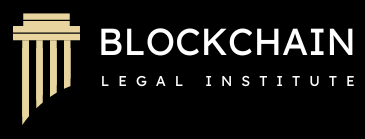Certainly, legal considerations are crucial when hiring for blockchain companies. The regulatory landscape for blockchain and cryptocurrencies can be complex and rapidly evolving. HR staff should be aware of the following legal areas when hiring for blockchain companies:
- Regulatory Compliance: Blockchain companies often operate within a rapidly changing regulatory environment. Ensure that candidates are aware of and prepared to navigate the legal requirements in the regions where the company operates. Candidates with a background in compliance and regulatory affairs are particularly valuable.
- AML/KYC Expertise: Companies dealing with cryptocurrencies often need to comply with Anti-Money Laundering (AML) and Know Your Customer (KYC) regulations. Hiring individuals with expertise in these areas can help the company maintain compliance with financial regulations.
- Securities Laws: Tokens and cryptocurrencies can sometimes be classified as securities, triggering securities regulations. HR staff should ensure that candidates are knowledgeable about securities laws and their implications for the company’s offerings.
- Data Privacy and Security: Blockchain involves the storage and transfer of data, which may include sensitive information. Candidates with a strong understanding of data privacy laws (such as GDPR) and cybersecurity measures are essential to ensure compliance and protect user data.
- Intellectual Property (IP): Blockchain projects often involve the creation of innovative technologies and solutions. Ensure candidates are familiar with IP laws and that the company’s intellectual property is adequately protected.
- Smart Contracts and Legal Implications: Smart contracts are an integral part of many blockchain applications. Candidates should be aware of the legal implications of smart contracts and understand how they can be enforced within existing legal frameworks.
- Token Offerings and Crowdfunding: If the company is involved in token offerings or crowdfunding, candidates should understand the legal implications and requirements associated with these activities, including securities laws and crowdfunding regulations.
- Cross-Border Transactions: Blockchain is inherently global, but different jurisdictions have varying legal requirements. Candidates with experience in cross-border transactions can help the company navigate legal complexities when operating internationally.
- Regulatory Updates: Blockchain regulations can change rapidly. Candidates who stay updated on regulatory changes and trends are better equipped to help the company adapt to new legal requirements.
- Licensing and Permits: Depending on the nature of the blockchain project, candidates with knowledge of licensing and permit requirements specific to the industry or application (e.g., fintech, healthcare) are valuable assets.
- Dispute Resolution: In the event of disputes or conflicts related to blockchain projects, candidates familiar with alternative dispute resolution mechanisms, including arbitration and mediation, can be beneficial.
- Contracts and Agreements: Blockchain projects often involve complex partnerships, collaborations, and agreements. Candidates should have experience drafting and negotiating contracts related to blockchain technology.
- Employee Contracts: Ensure that employment contracts for candidates in blockchain roles include relevant clauses regarding intellectual property rights, confidentiality, and non-compete agreements, as these can be especially important in this industry.
- Token Regulations: If the company deals with tokens, it’s essential to understand their classification (utility vs. security tokens) and the legal implications of each.
- Educational Background: Look for candidates with legal backgrounds such as lawyers, compliance experts, or regulatory specialists who are familiar with the intricacies of blockchain-related legal issues.
Navigating the legal landscape in the blockchain industry requires a combination of industry-specific knowledge and legal expertise. Collaborating with legal professionals and candidates who are well-versed in these legal areas can help the company remain compliant and avoid potential legal pitfalls.
